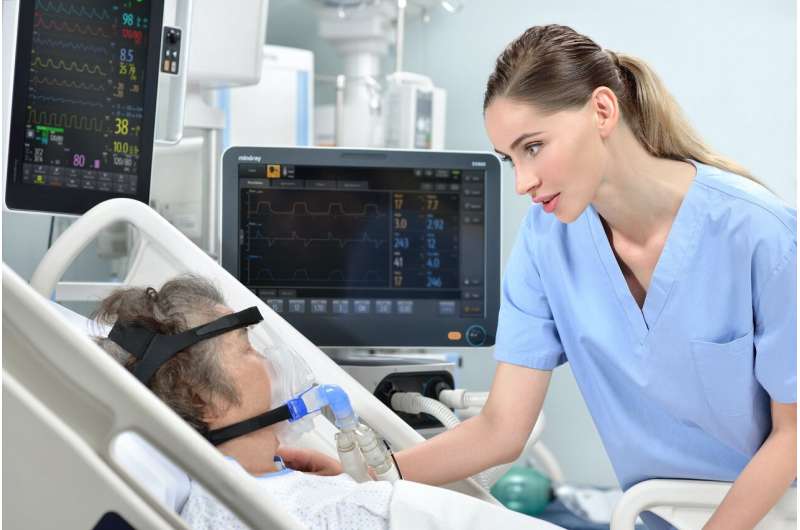Hypnosis Enhances Tolerance for Ventilation Masks in Respiratory Emergency Patients

A groundbreaking study shows that hypnosis can significantly improve patient comfort and tolerance of noninvasive ventilation masks during emergency respiratory distress, potentially leading to better clinical outcomes.
Recent research indicates that hypnosis can significantly improve patients' ability to tolerate noninvasive ventilation (NIV) masks during episodes of acute respiratory failure. Presented at the European Emergency Medicine Congress, the study demonstrates that incorporating hypnosis into emergency respiratory care can lead to better patient comfort, reduced anxiety, and enhanced clinical outcomes.
Patients suffering from respiratory distress often require NIV, which involves wearing a mask connected to a machine to increase oxygen delivery and remove excess carbon dioxide. However, many patients find the mask uncomfortable or anxiety-provoking, leading to poor compliance, sedation, or even escalation to invasive ventilation. This discomfort is a major challenge in emergency settings.
Led by Dr. Tobi Hamza from the Mohammed V Military Teaching Hospital in Rabat, Morocco, the study explored whether hypnosis could serve as a non-pharmacological method to ease patient discomfort. Between December 2023 and May 2024, 20 patients with acute respiratory distress were recruited and split into two groups. The control group received standard NIV plus anti-anxiety medication if needed, while the experimental group received a structured hypnosis session before therapy.
The hypnosis protocol involved a calming voice-guided induction, breathing synchronization, visualization techniques, deepening relaxation, and therapeutic suggestions fostering safety and cooperation. Conducted by a trained medical hypnotist, the sessions aimed to reduce anxiety and physical discomfort.
Results showed a remarkable improvement in mask tolerance among the hypnosis group. Eight out of ten patients in this group completed NIV successfully without requiring sedation or invasive ventilation, compared to five out of ten in the control group. Patients also experienced less agitation, lower respiratory distress scores, shorter ER stays, and a greater reduction in blood CO₂ levels. The hypnosis group rated their comfort higher, averaging 7.5 out of 10, compared to 4.3 in the control group.
Dr. Hamza emphasized that these findings suggest hypnosis as a promising, low-cost adjunct to emergency respiratory care, potentially reducing the need for sedatives and improving patient outcomes. Although preliminary, the study highlights the potential of hypnosis to make NIV more tolerable and effective in acute settings. Further larger-scale, multicenter research is underway to validate these observations and assess long-term impacts.
The study also acknowledges limitations, including its single-center design, challenges in obtaining consent, and the necessity of trained personnel. Nonetheless, experts like Dr. Felix Lorang note that verbal guidance is crucial in NIV compliance, and hypnosis may further enhance this interaction, warranting further investigation.
Stay Updated with Mia's Feed
Get the latest health & wellness insights delivered straight to your inbox.
Related Articles
Promoting Healthy Movement in Child Care: Guidelines to Enhance Children's Wellbeing
Canadian child-care centers can boost children's health by adopting new movement guidelines and educator training programs designed to foster active lifestyles from a young age.
Maternal Mortality During or After Pregnancy Significantly Affects Infant Health Outcomes
Maternal health during pregnancy significantly influences infant survival and hospitalization risks. New research shows increased infant mortality linked to maternal death and severe illnesses postpartum, emphasizing the need for stronger maternal healthcare policies.
How Wildfire Smoke Affects Your Health and What You Can Do
Wildfire smoke releases tiny particles that can harm your respiratory and cardiovascular health. Learn how to protect yourself during smoke events and the latest research on its health impacts.



